43 metamorphic facies diagram
Figure 10.35 shows the different metamorphic facies as patches of different colours. The axes on the diagram are temperature and depth; the depth within the Earth will determine how much pressure a rock is under, so the vertical depth axis is also a pressure axis. Metamorphic field gradients can also be used to define metamorphic facies series for specific metamorphic belts, as shown in the diagram below. Here, in addition to the contact, Buchan, and Barrovian Series, discussed above, are shown the facies series and metamorphic field gradients deduced for the Franciscan rocks in California and the ...
Metamorphic Facies Metamorphic Facies Fig. 25.2. Temperature- pressure diagram showing the generally accepted limits of the various facies used in this text. Boundaries are approximate and gradational. The “typical” or average continental geotherm is from Brown and Mussett (1993). Winter (2010) An Introduction to Igneous and Metamorphic Petrology.

Metamorphic facies diagram
Download scientific diagram | The pressure-temperature diagrams of metamorphic facies in terms of petrology (a) and tectonics (b), with PeT fields for given mineral assemblages (modified after ... As metamorphic rocks change under heat and pressure, their ingredients recombine into new minerals that are suited to the conditions. The concept of metamorphic facies is a systematic way to look at the mineral assemblages in rocks and determine a potential range of pressure and temperature (P/T) conditions that were present when they formed. Temperature-pressure diagram showing the three major types of metamorphic facies series proposed by Miyashiro (1973, 1994). Included are the facies boundaries from Figure 1.
Metamorphic facies diagram. Keep Scrolling Down! The previous diagram depicts various Metamorphic Facies and their Temperature and Pressure Environments. A metamorphic FACIES includes all of the rocks and minerals that form in a given metamorphic environment under specific temperature and pressure conditions. They are usually named for their most common rock type or mineral. Metamorphic Facies Best, Chapter 10 Metamorphic Grade Controlled by the temperature of metamorphism Low-grade rocks contain hydrated and carbonated phases High-grade rocks are dehydrated and decarbonized Metamorphic Zones Mappable metamorphic units of similar grade in a rock of distinct composition Isograds are lines marking the first appearance of key minerals Zones of Barrow Biotite, garnet ... Transcribed image text: Activity 7.5: Metamorphic Facies The diagram below shows a granite pluton that intruded into a sequence of sedimentary rocks (with a basalt dikel). Depending on their proximity to the once-molten intrusion, the rocks experienced a range of temperatures and pressures, resulting in different grades of metamorphism. Metamorphic Facies. Eskola (1915) developed the concept of metamorphic facies: “ In any rock or metamorphic formation which has arrived at a chemical equilibrium through metamorphism at constant temperature and pressure conditions, the mineral composition is controlled only by the chemical composition. We are led to a general
English: Diagram showing metamorphic facies in pressure-temperature space, with approximately depth marked. Key: Blueschist facies; Eclogite facies; Prehnite-pumpellyite-facies; Greenschist facies; Amphibolite-facies; Granulite facies; Zeolite facies; Albite-epidote-hornfels facies; Hornblende-hornfels facies; Pyroxene-hornfels facies ... One of the first uses of these types of diagrams was by Eskola (1915) who employed a diagram known as the ACF diagram in his study of metamorphic rocks. To plot a rock on the ACF diagram, the chemical analysis of the rock is first recalculated to molecular proportions by dividing the molecular weight of each oxide constituent by the molecular ... A metamorphic facies is a set of mineral assemblages in metamorphic rocks formed under similar pressures and temperatures. The assemblage is typical of what is formed in conditions corresponding to an area on the two dimensional graph of temperature vs. pressure (See diagram in Figure 1). Rocks which contain certain minerals can therefore be linked to certain tectonic settings, times and ... Nov 11, 2012 · Metamorphic facies 1. Diagram showing metamorphic facies in pressure- temperature space. The domain of thegraph corresponds to circumstances within the Earth's crust and 11/11/2012 upper mantle.
The typical Barrovian facies series is greenschist, epidote-amphibolite, amphibolite and granulite facies metamorphism which follows the index mineral sequence ... Incipient melting of metamorphic rocks. Diagram below shows melting conditions relative metamorphic facies. A broad zone of Hbl → pyx + H 2 O separates amphibolite and granulite facies and provides the water for melting leucosome melanosome Geothermometers and Geobarometers GARB -used to calculate temperature (Exchange reaction) Fe 3 Al 2 Si 3 O Metamorphic facies • We know that the chemical composition of metamorphosed rocks does not change • Metamorphism is isochemical • Elements are redistributed but not lost • Consequently any changes are the result of temperature and pressure • This has led to the concept of metamorphic facies The metamorphic facies series encountered in different tectonic regimes or settings can be summarized as follows, and are shown schematically on Figs. : Ridges and rift valleys: Areas of magmatic activity Subduction zones: u02409739. U. Gerrit Jordaan. Quick saves. Earth And Space Science. Science And Nature.
3 Metamorphic Facies Fig. 25 -2. Temperature-pressure diagram showing the generally accepted limits of the various facies used in this text. Boundaries are
The diagram below shows metamorphic facies in terms of pressure and temperature condiditons inside the earth. earth's surface conditions are near the top left corner of the graph at about 15 ºC which is the average temperature at earth's surface and 0.1 MPa (megapascals), which is about the average atmospheric pressure on the earth's surface.
Sometimes metamorphic facies are presented, very incorrectly IMO, as regions on a p,T-diagram: in this case, the diagram is partitioned into nice contiguous facies with nicely defined names. One can argue about the separating isograds, but they're contiguous.
A pressure-temperature diagram showing the fields of the metamorphic facies is shown in Fig. 2. These facies are the most common types seen on Earth. The pressure shown on these figures is considered to be the result of the mass of the column of rock that occurs above the rocks undergoing metamorphism (termed the lithostatic pressure).
Short and Simple explanation of Metamorphic Facies Topic in exam point of view. Objective bits from this topic are frequently seen in GATE, CSIR-NET, JAM and...
The classical metamorphic facies diagram, as proposed by Eskola (1920) and later refined in many textbooks (e.g., Bucher and Frey, 2002; Spear, 1993 ), provides a framework to place metamorphic rocks of crustal composition into a region of pressure–temperature ( P – T) space, based on mineral assemblages ( Figure 1 ).
facies plots right along the melting curve of the facies diagram and comprises rocks that have been partially melted. We’ll ignore this facies in GY 111 as it has crossed over to the “dark side” of geology (igneous rocks). By the way, it is possible to add the basic metamorphic rock types to the facies diagram (see my attempt to the right).
About Press Copyright Contact us Creators Advertise Developers Terms Privacy Policy & Safety How YouTube works Test new features Press Copyright Contact us Creators ...
(2) metamorphic facies : assemblages of minerals, each characteristic for a particular bulk composition and indicating the range of pressure-temperature conditions at which the rock equilibrated (Figure 2). For example, high-pressure - low-temperature conditions characterize the blueschist facies.
Diagram showing schematic representation of metamorphic-facies groups ... The metamorphic-facies determination scheme (fig. 3, table 1) on which the map (sheet 1) is based was developed by the Working Group for the Cartography of the Metamorphic Belts of the World (Zwart and
This is an online quiz called Metamorphic Facies Diagram (Subduction Zone Path) There is a printable worksheet available for download here so you can take the quiz with pen and paper. From the quiz author
A metamorphic facies is a set of mineral assemblages in metamorphic rocks formed under similar pressures and temperatures. [1] The assemblage is typical of what is formed in conditions corresponding to an area on the two dimensional graph of temperature vs. pressure (See diagram in Figure 1). [1]
Temperature-pressure diagram showing the three major types of metamorphic facies series proposed by Miyashiro (1973, 1994). Included are the facies boundaries from Figure 1.
As metamorphic rocks change under heat and pressure, their ingredients recombine into new minerals that are suited to the conditions. The concept of metamorphic facies is a systematic way to look at the mineral assemblages in rocks and determine a potential range of pressure and temperature (P/T) conditions that were present when they formed.
Download scientific diagram | The pressure-temperature diagrams of metamorphic facies in terms of petrology (a) and tectonics (b), with PeT fields for given mineral assemblages (modified after ...
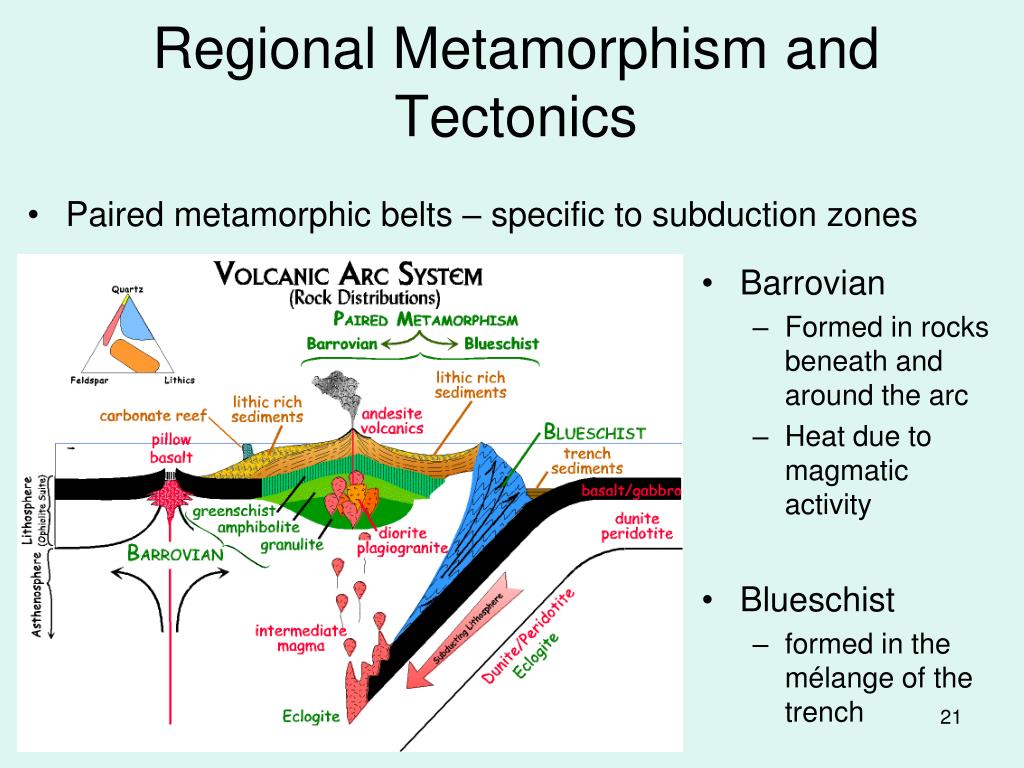

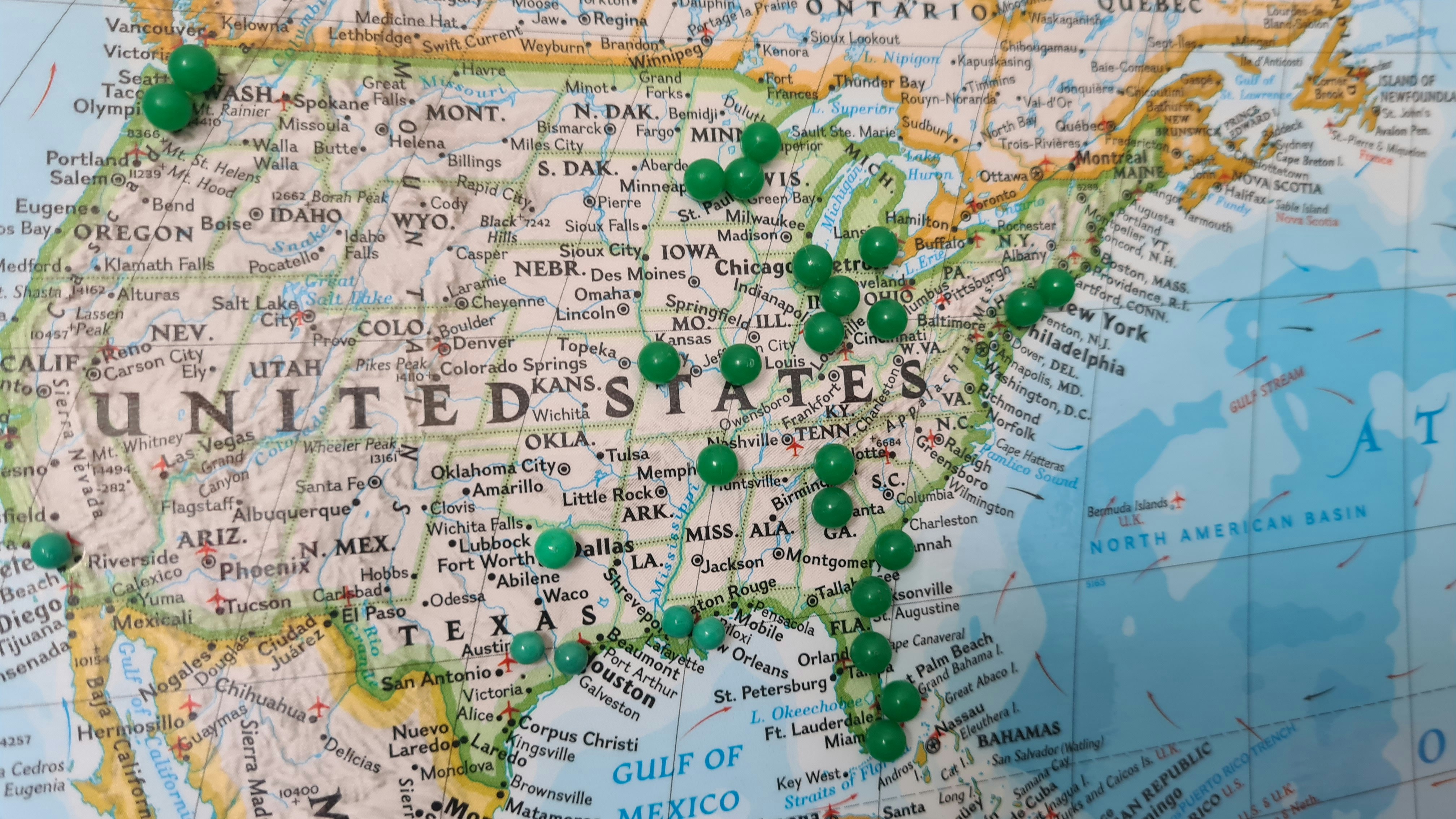
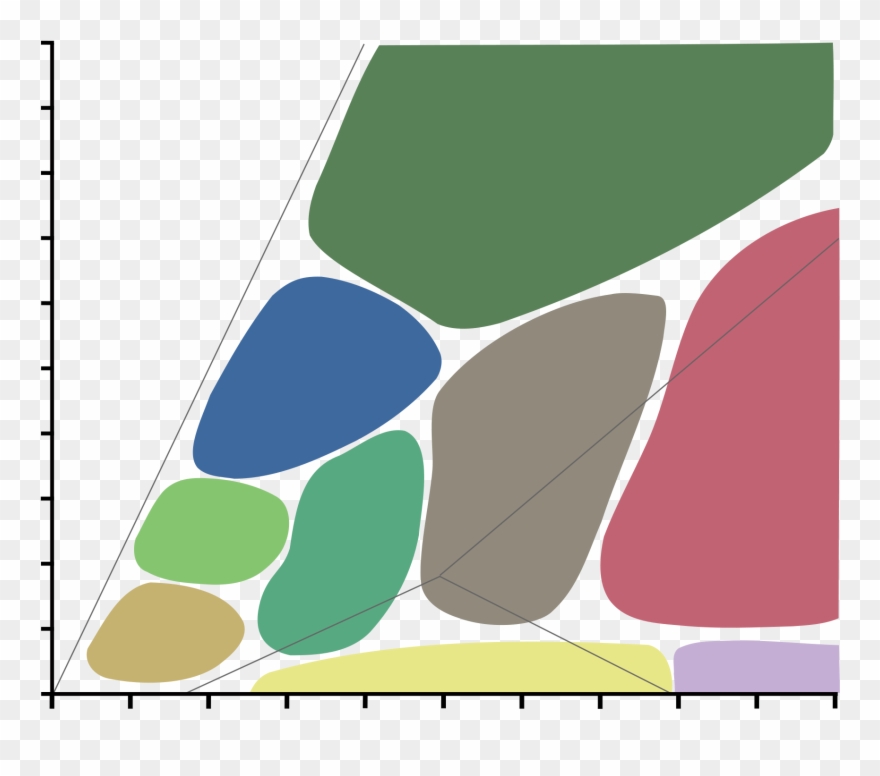

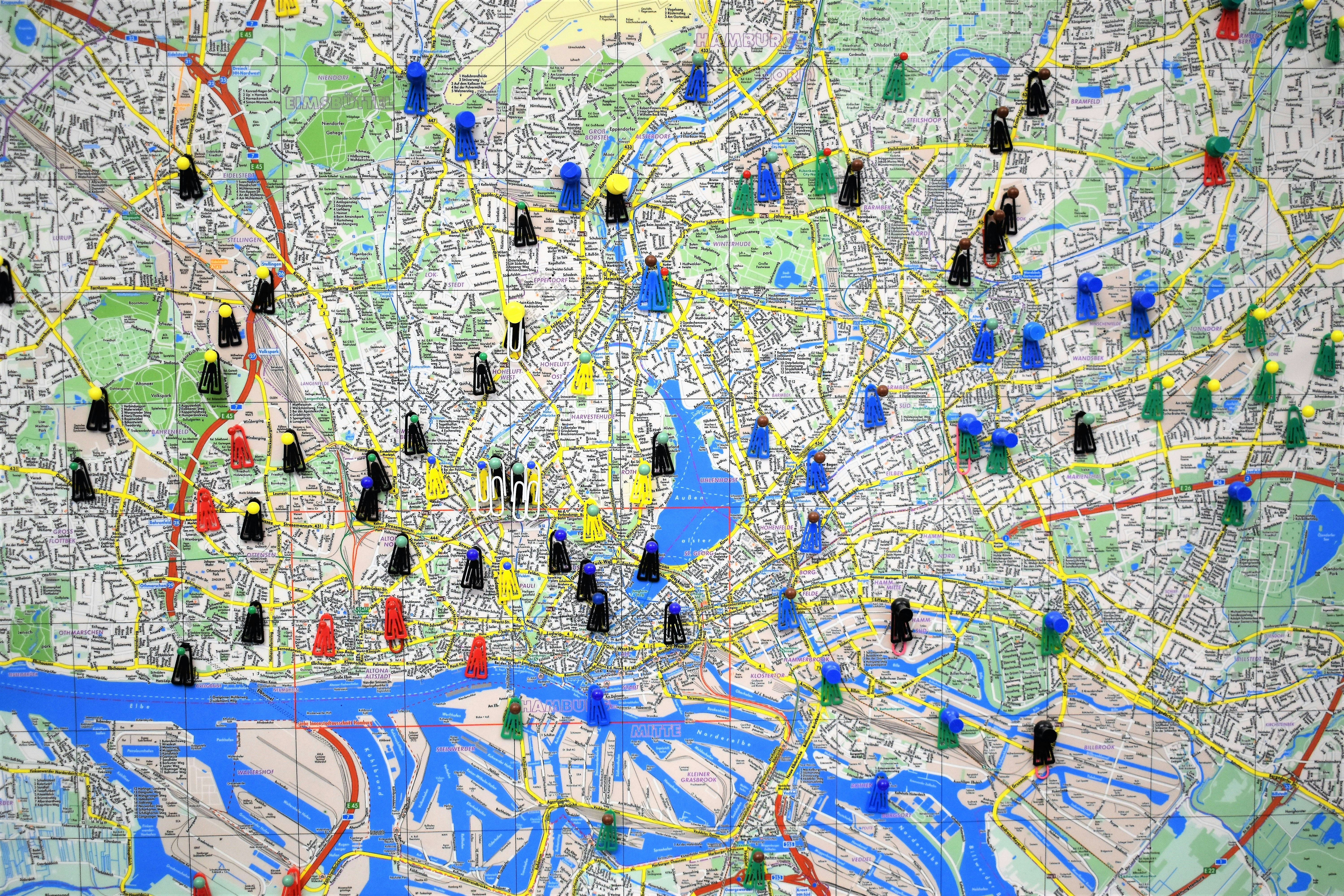
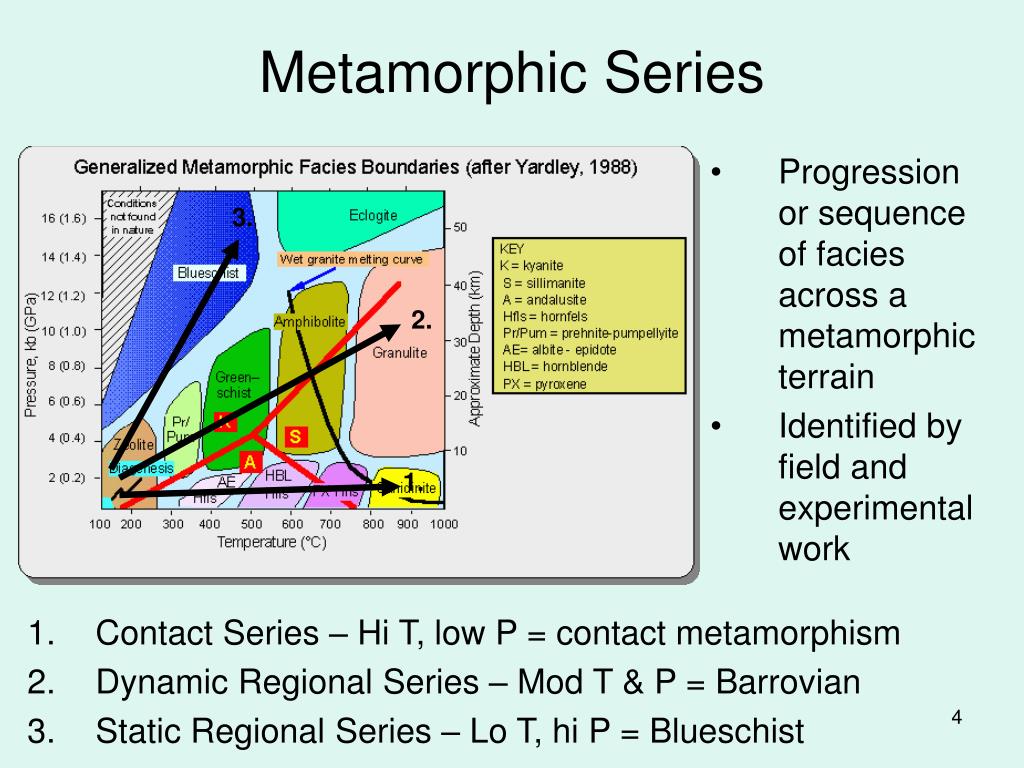










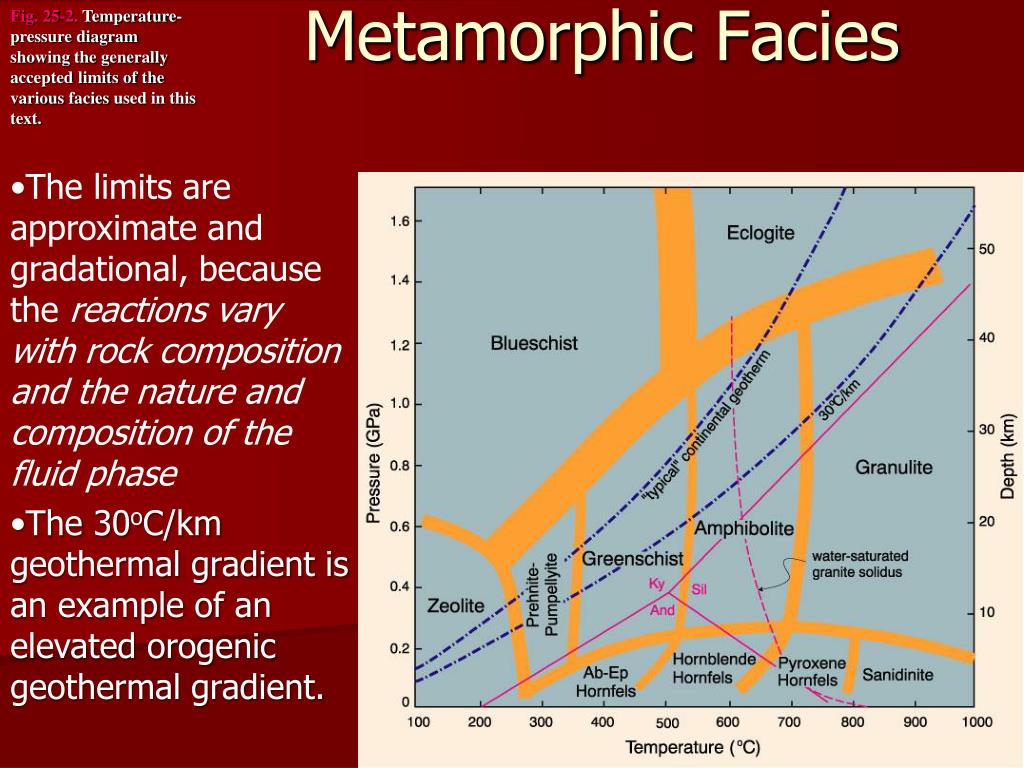
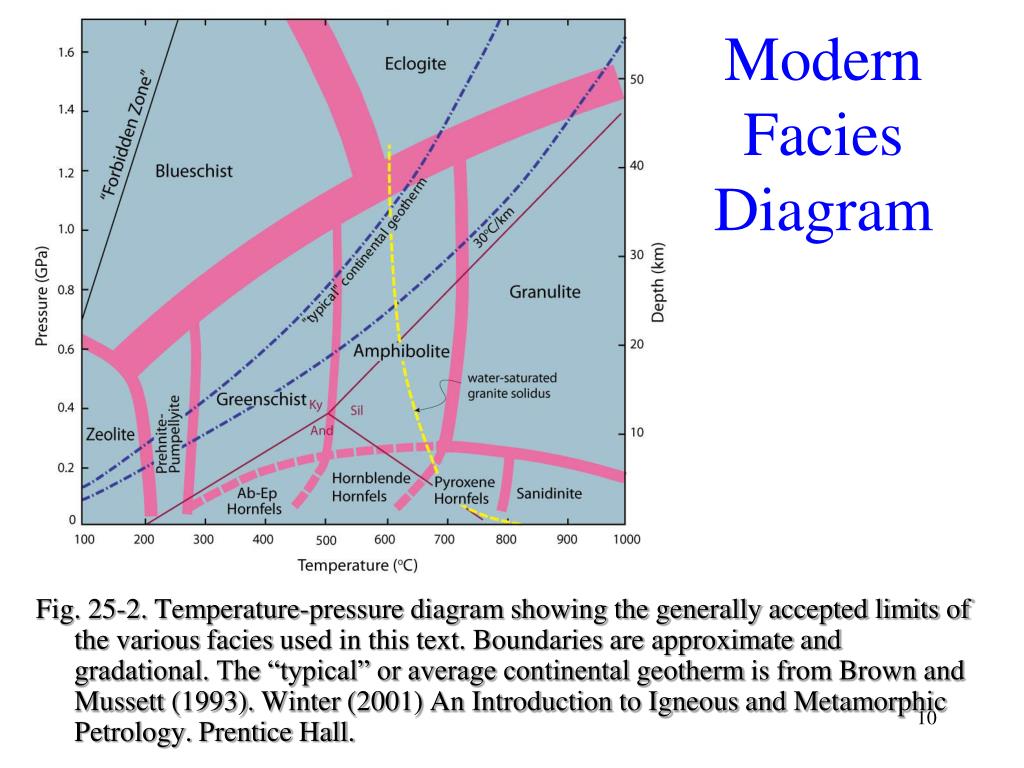












Comments
Post a Comment